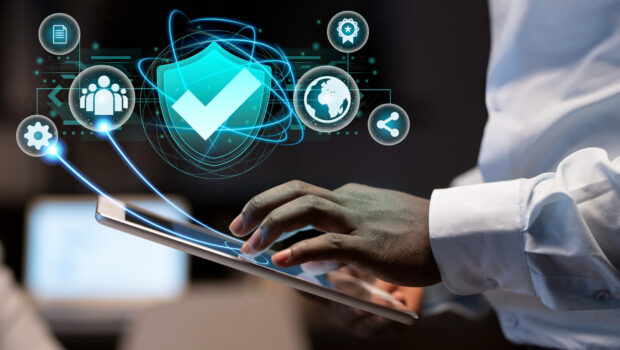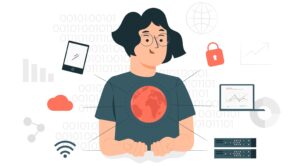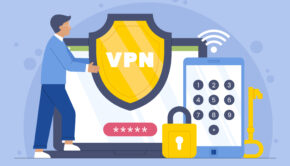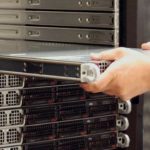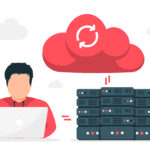Remote Work: The Best Secure Access Solutions for Modern Businesses
In the era of digital transformation, “Revolutionizing Remote Work: The Best Secure Access Solutions for Modern Businesses” delves into the critical role of secure access in facilitating remote work. This exploration offers insights into current solutions and future trends, essential for businesses navigating the remote work landscape. Immerse yourself in geekpedia.com, where you can uncover a trove of coding tutorials, the latest tech news, and expert guides. Elevate your expertise with our diverse collection of programming languages and tools.
Current Secure Access Solutions
In the landscape of modern business, the adoption of secure access solutions is a fundamental aspect of enabling remote work. Among the most prevalent solutions, Virtual Private Networks (VPNs) stand out. A VPN creates a secure, encrypted tunnel for data transmission between a remote user and the company’s network, thereby shielding sensitive information from potential cyber threats. However, VPNs are not without limitations; they can sometimes slow down network performance and may not fully cover all aspects of cybersecurity.
Zero Trust Architecture represents a significant shift in security philosophy. Unlike traditional security models that trust devices within a network perimeter, Zero Trust operates on the principle that trust is never assumed, regardless of the network’s location. This approach requires verification for every access request, creating a more dynamic and secure environment, particularly for businesses with remote workforces.
Cloud-based solutions are also gaining traction due to their scalability and flexibility. These solutions leverage cloud computing to provide secure access to resources and applications, regardless of the user’s location. This is particularly beneficial for businesses that require high scalability and wish to minimize the maintenance and infrastructure costs associated with traditional on-premises solutions. Cloud-based security solutions offer the advantage of regular updates and improvements from the service provider, ensuring that security measures evolve in tandem with emerging threats.
Implementing Secure Access in Your Business
The implementation of secure access solutions in a business environment requires a careful assessment of specific needs and challenges. This begins with a thorough analysis of the existing security infrastructure and the identification of any potential vulnerabilities. It is essential for businesses to understand their unique requirements, which vary based on factors like the size of the company, the nature of the data handled, and the typical patterns of remote work among employees.
Choosing the right secure access solution involves weighing various factors, including cost, scalability, ease of use, and compatibility with existing systems. The decision should be guided by the specific needs identified in the assessment phase. For instance, a small business with limited resources might prioritize cost-effective and easy-to-manage solutions, while a large corporation dealing with sensitive information might focus on more robust and comprehensive security measures.
Once a suitable solution is chosen, implementing it effectively is crucial. This involves not only the technical deployment but also training employees on the new system and best practices for maintaining security. Regular updates and maintenance are essential to ensure that the security measures remain effective against evolving cyber threats. Employee training should be an ongoing process, reinforcing the importance of security and keeping staff updated on any changes or new threats.
Future of Secure Access in Remote Work
Looking ahead, the future of secure access in remote work is likely to be influenced heavily by advancements in technology, particularly in the fields of Artificial Intelligence (AI) and Machine Learning (ML). These technologies have the potential to revolutionize cybersecurity by enabling more sophisticated threat detection and response mechanisms. For instance, AI-driven security systems can analyze patterns and detect anomalies in network traffic, identifying potential threats more quickly and accurately than traditional methods.
The importance of mobile access solutions is also expected to grow, as the workforce becomes increasingly mobile and decentralized. Security solutions will need to adapt to this trend, ensuring that mobile devices are as secure as traditional workstations. This might include the development of more advanced mobile-specific security features, such as biometric authentication and encrypted mobile communications.
In conclusion, as remote work continues to evolve, so too will the solutions for secure access. Businesses must remain vigilant and adaptable, ensuring that their security measures are robust, flexible, and capable of meeting the challenges of an ever-changing digital landscape.
Conclusion
As we unpacked the intricate world of secure access in remote work, it’s clear that embracing these solutions is pivotal for modern businesses. Staying ahead in this dynamic field will ensure not only security but also the successful adaptation to the ever-evolving demands of remote work.
Cover Image by Freepik

